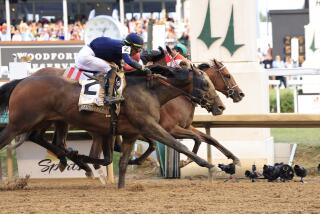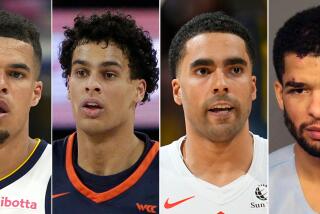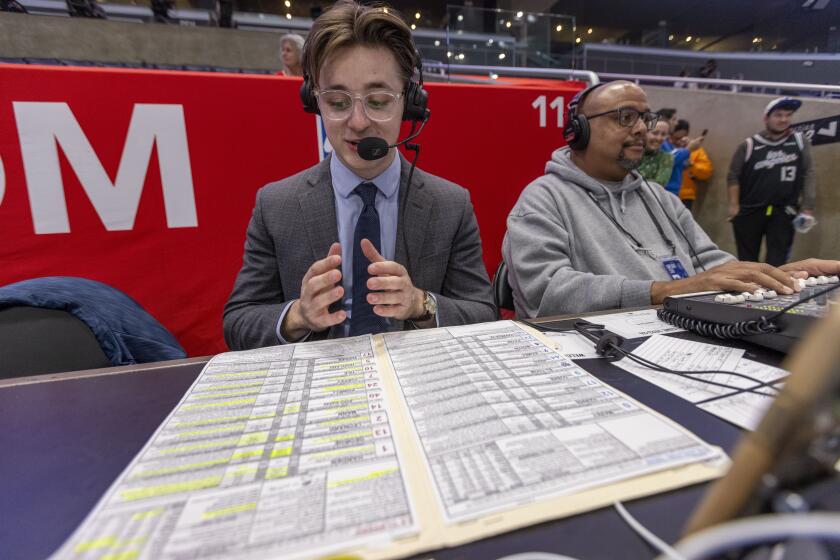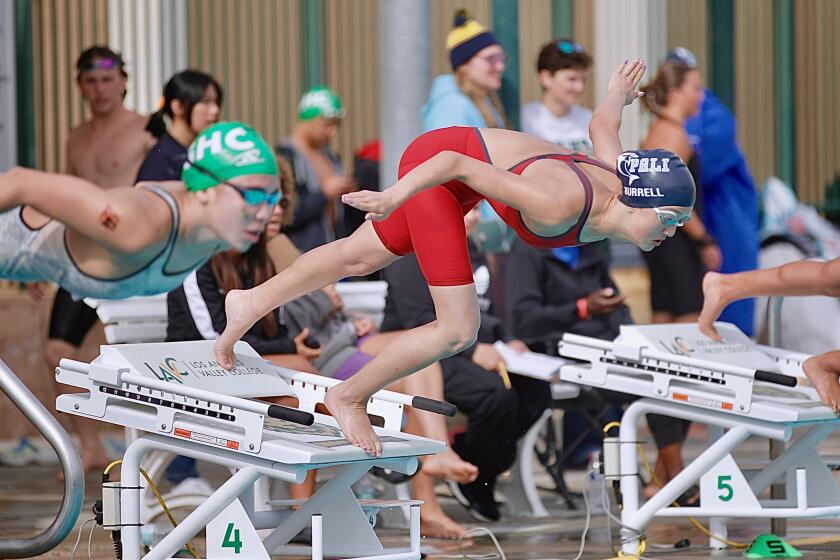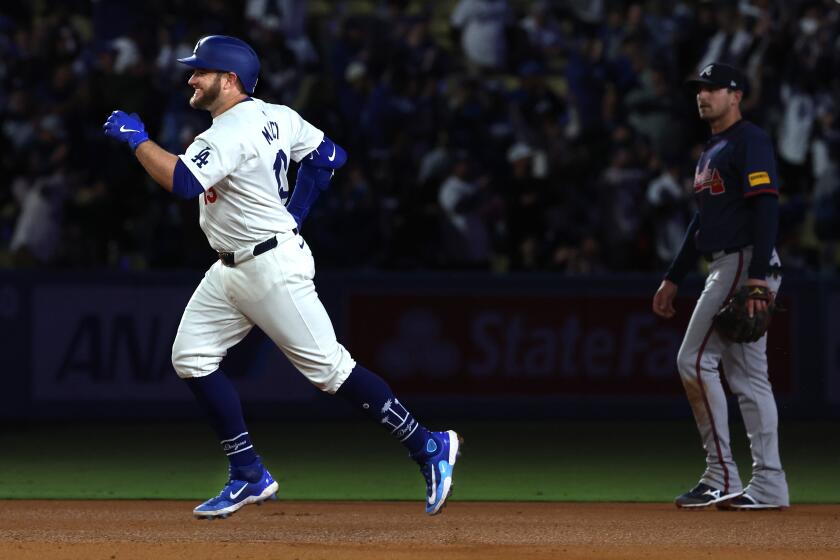HGH testing could be adopted
A British rugby player’s blood sample emerged this week as a landmark case, the first positive result for human growth hormone in testing by a national sporting anti-doping agency. The athlete, Terry Newton, confessed to using the banned substance and Wednesday, after being slapped with a two-year ban from the game, publicly apologized for his “grave error in judgment.”
Newton’s positive test is expected to be followed shortly by others, a source familiar with worldwide doping programs told The Times on Wednesday. The source spoke on the condition of anonymity because authorization hasn’t been given to speak publicly on the matter.
Yet, as the NFL and Major League Baseball push to institute blood-testing programs to unearth HGH users, how Newton dealt with his positive result is unlikely to be repeated any time soon in the U.S., where the test is not automatically accepted by American athletes -- and their advisors -- as indisputable proof.
“This guy [Newton] just said, ‘OK, you caught me,’ but a major league baseball player will never do that,” said Victor Conte, founder of the Bay Area Laboratory Co-Operative (BALCO) who was briefly imprisoned for distributing performance-enhancing drugs to world-class athletes, including sprinter Marion Jones, boxer Shane Mosley and the personal trainer of baseball slugger Barry Bonds.
“I know the anti-doping authorities are painting this as a big victory, but this doesn’t prove the test is reliable and valid,” Conte said. “That will only occur in a court of law, after the player, supported by a team of scientists and lawyers, takes his turn.”
Nevertheless, authorities such as World Anti-Doping Agency Director General David Howman assessed Newton’s positive (secured by the United Kingdom Anti-Doping agency) as a reason for the world’s sporting bodies to increase blood testing -- especially out of competition -- to catch those who have “been using this substance with no impunity for a number of years.”
The NFL this year told its players union of its interest in testing for HGH.
“Our position is that HGH blood testing has advanced to the point where we are taking steps to incorporate it into our program,” NFL spokesman Greg Aiello said. “Blood work is part of our players’ annual physical. We do have mandatory blood testing already.”
An NFL Players Assn. representative has said “there’s no reason” to implement blood testing at this time, but Aiello said a request by the league to do so can be done “between now and training camp,” in advance of collective-bargaining sessions, with the opportunity to have testing in place before the 2010 season.
“The argument that there’s no longer a valid test no longer holds water,” said Dr. Gary Wadler, chairman of WADA’s prohibited list. “There’s now a positive, the test is commercially produced. There’s no excuses to hide from testing anymore, and the pressure is on all sports leagues to implement blood testing.
“The fact is there’s a way to detect HGH now and even if lawyers try to pick apart at it, or people say they didn’t take it, we can now find out. This is the wake-up call.”
In an e-mail to The Times, NFLPA spokesman Carl Francis wrote, “The NFLPA along with the NFL has supported research to find a suitable test that will detect sustained HGH use. We have and will continue to work with the NFL to build a system that is fair, reliable and maintains the integrity of our game and the health and safety of our players. We believe in, and collectively bargained for, a system that supports the testing of all banned substances. We look forward to discussing the NFL’s proposed blood testing program in our next CBA meeting.”
A baseball authority has said Commissioner Bud Selig wants to have players blood tested for HGH, with the baseball expected to adopt a blood-testing program for minor league players this year in its effort to root out use of the substance that has been credited for building strength.
Officials with the baseball players’ union have said they would consider a validated HGH test. MLB officials expressed hope at a 2008 HGH summit in Beverly Hills that a urine test for HGH had potential. Wadler argues, in the interim, the blood test should be put into effect.
Likely use of the untested substance has made for uneasy assessment of some individual performances.
“There’s obviously a little gap that needs to be bridged in the drug testing, and it would go a long way toward closing it if you could find something to detect [HGH],” Angels Manager Mike Scioscia said.
Dodgers pitcher George Sherrill said there should be testing for the substance.
“It just guarantees that the playing field’s even and no one’s cheating,” Sherrill said. “I don’t know if anybody is or not, but this is a way to guarantee it and make sure the game’s clean. They’ve gotten everything else out of the game -- why not take the last couple of steps?”
Keith Kizer, executive director of the Nevada State Athletic Commission, said he doesn’t “know where this leads,” after a dispute over blood testing led to the cancellation of next month’s scheduled Manny Pacquiao-Floyd Mayweather Jr. fight in Las Vegas.
“This is a pleasant development and something we’ll take great interest in,” Kizer said.
Times staff writers Mike DiGiovanna and Dylan Hernandez contributed to this report.
More to Read
Get our high school sports newsletter
Prep Rally is devoted to the SoCal high school sports experience, bringing you scores, stories and a behind-the-scenes look at what makes prep sports so popular.
You may occasionally receive promotional content from the Los Angeles Times.

